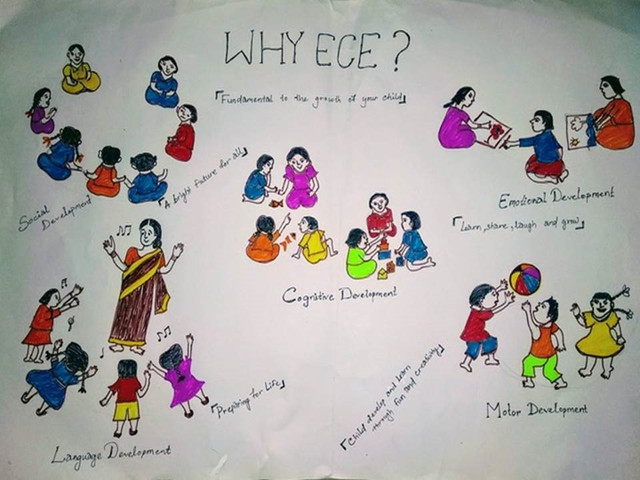Applying the course in country
Participants were active and engaged on the online discussion forum and Facebook page, both of which complemented the course and provided spaces for participants to exchange ideas and develop a vibrant professional community. Participants were able to use these channels to resolve problems together, provide examples from their own experiences and learn from each other. Overall, participants expressed their high satisfaction with the course design, content, resources, and its relevancy for their professional practice.
“I have found this course of great importance in my work as I have come to realize how important quality assurance and monitoring is critical for ESP. For ECE to succeed, issues of quality assurance and monitoring must be given the weight they deserve. The third and fourth modules were critical for me, learning how to go about an ESP has greatly empowered me.”
Njoki Knyugo, Deputy Director of Quality Assurance and Standards, Ministry of Education, Kenya
“The MOOC provided me with further skills in the ECE subsector analysis as well as education sector plan. It really helped me boost the efficiency of our State Education Sector Plan (SESP) Technical Team in improving our skills to develop the SESP. I can confidently organize a sensitization program on the benefits of ECE to communities and advocate for the importance of mainstreaming ECE into ESPs to education stakeholders.”
Oguike Philip, EMIS Head, Imo State Universal Basic Education Board, Nigeria
“We have learned to better understand issues around quality and equity in ECE, and it helped us as managers to shed more light on future activities for our plan. The MOOC has come at the right time, exactly when we are reviewing the education sector analysis, and has given us a better understanding of how we can strengthen ECE in our upcoming strategy.”
Masifiso Chetane - Senior Economic Planner ECCD, Lesotho
Next steps
The success of the MOOC illustrates the high level of engagement on improving education sector planning for the pre-primary education subsector. While the first MOOC on this topic has officially ended, we are reflecting on how this MOOC might be further improved and offered in the future.
The course readers for the 5 MOOC modules are published online in English as a global resource. French versions of the course readers are under development and are expected to be available in the coming months. The course organizers are exploring opportunities for future cohorts to engage in this topic.
The efforts to improve education sector planning and policy for ECE are a main focus of GPE’s Better Early Learning and Development at Scale (BELDS) initiative in partnership with UNICEF. BELDS includes capacity-building activities and peer learning exchange in four pilot countries (Ghana, Kyrgyz Republic, Lesotho, and Sao Tome and Principe). BELDS will launch a global toolkit of resources on ECE in education sector planning in June 2020.
This MOOC has now earned the Quality Matters (QM) Certification, an internationally recognized symbol of online and blended course design quality.
Hannah Maddrey (UNESCO-IIEP), Hsiao-Chen Lin (UNICEF), and Yoshie Kaga (UNESCO) also contributed to this blog

